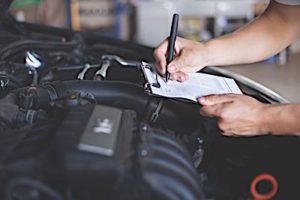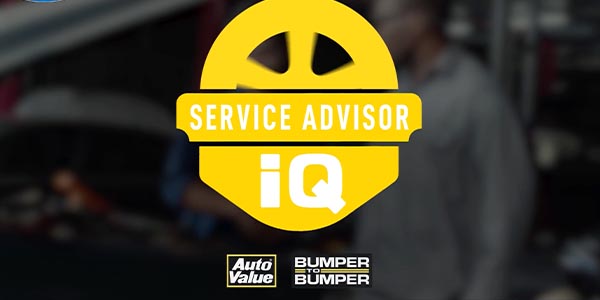This probably doesn’t come as news to you, but every new customer who walks through your doors comes preloaded with trust issues. They have already been betrayed by their car and probably also by the dealer at one time or another, and they expect you to be the latest one to disappoint them.
It doesn’t have to be this way. Showing customers that they’re getting more value out of their service experience can be a game-changer for your shop. Customer service doesn’t hinge on the loaner car or the free WiFi. And, it’s not all about the hot chocolate and warm cookies, or even the way you text your customer with details about the repair.
The details that matter most during the service and repair process are probably the reasons that prompted you to open your own shop in the first place: honesty, service and integrity. If that’s hard to believe, it might help to understand where I’m coming from before we dig in to how we run our shop.
My background is in hospitality. I’ve run restaurants, been a maître d’ at a five-star hotel, owned nightclubs and worked as a service writer for many years. I consistently wrote more than $1,000,000 in service back in the 1990s when our labor rates were closer to $50-$60 per hour, and have been running a shop and helping turn around other shops every day since.
I don’t tell you these things for any other reason than to explain that time and again — across industries, services and customer bases — that being honest, ethical and straightforward is the most direct path to success. Instilling these core beliefs into our business was a critical part of our shop growing from $1.5 million to $3.5 million in about three years.
For the purposes of this article, here’s how you boil honesty, ethics and being straightforward down to the details to be the shop customers are looking for.
Hold Your Technicians Accountable to do a Complete Inspection
What if I told you there was something your shop could do today that would build trust with every customer, raise your average repair order and dramatically increase sales? What if it also didn’t cost a cent to implement?
That something is the vehicle inspection — the detail that matters most during the service and repair process. Beyond your ethical and legal responsibility, it is the secret to growing your business sustainably and profitably.
But better inspections aren’t all about the forms, workflow systems or process you use. Better inspections start with accountability. Every technician must inspect every vehicle, every time. And this means two things for you, the owner. It means the technician must understand the importance of doing a complete inspection, every time, while also understanding the value it brings to customers. They must see how the inspection leads directly to a larger paycheck and, where possible, their pay plan should encourage doing thorough inspections.
Along with the incentive, there must be measurement. You must track how thoroughly the technician is inspecting every vehicle, how they’re doing compared to their benchmarks every day and what they must do to improve that number.
When you hold your technicians accountable to do an honest assessment of the condition of your customers’ vehicles every time, you can work on the other most critical detail that distinguishes top shops.
Hold Your Service Writers Accountable to do a Complete Advisement
The second most important detail during the service and repair process is doing a complete advisement. The technician has already done a complete inspection, so now the service writer must be willing to present everything to the customer.
The order in which things are presented is also important. Helping the customer prioritize is critical.
But all that is meaningless unless the service writer is willing and able to present that inspection to the customer. The percentage of service writers who present only what they think they can sell is astronomical, which means two things for your shop.
The service writer must understand the importance of presenting every recommendation, every time. And, where possible, their pay plan should encourage the same. If they don’t see the value, the service writer will pencil-whip the advisement.
And just as with technicians, measurement, accountability and incentives go hand in hand. If you’re not tracking your service advisors’ effectiveness at closing recommendations, you can’t hold them accountable to perform.
Pay plans need to be synchronized across all employees and designed to remove disincentives. Otherwise, a plan can ruin employees’ morale and cost a shop hundreds of thousands of dollars.
Do It For Every Car, Every Day
If this sounds incredibly basic, that’s good, because it means that you understand the importance of measurement and accountability for getting your team to perform.
But, I’d counter by asking: “Does your shop do this even when there’s a line out the door in the summer?”; “Do you always inspect every car, even when you’re backed up?”; “Do you present every recommendation, even when there’s a service writer who’s out sick?” or does your measurement show that inspection and advisement both take a dip when things get hectic?
We don’t just measure our shop. We measure hundreds of other shops across the country, and have been for almost 20 years. I can tell you from a data standpoint that the overwhelming majority of shops don’t get this process right.
This leads to shops leaving an incredible amount of money on the table. But instead of getting the basic details right, some turn to unethical means to make up those lost profits — making it harder for every shop owner to win trust and build loyalty.
The secret to running a successful, profitable shop is simple: it’s about being ethical, honest, caring and trustworthy.
The details that matter most are the inspection and advising process. Your shop should care enough about your customers to do these steps thoroughly — on every car, every day. To execute on this, you must be engaged in constant training, and even more constant measurement and adjustment with the proper data and tools.
Article courtesy Shop Owner.
















